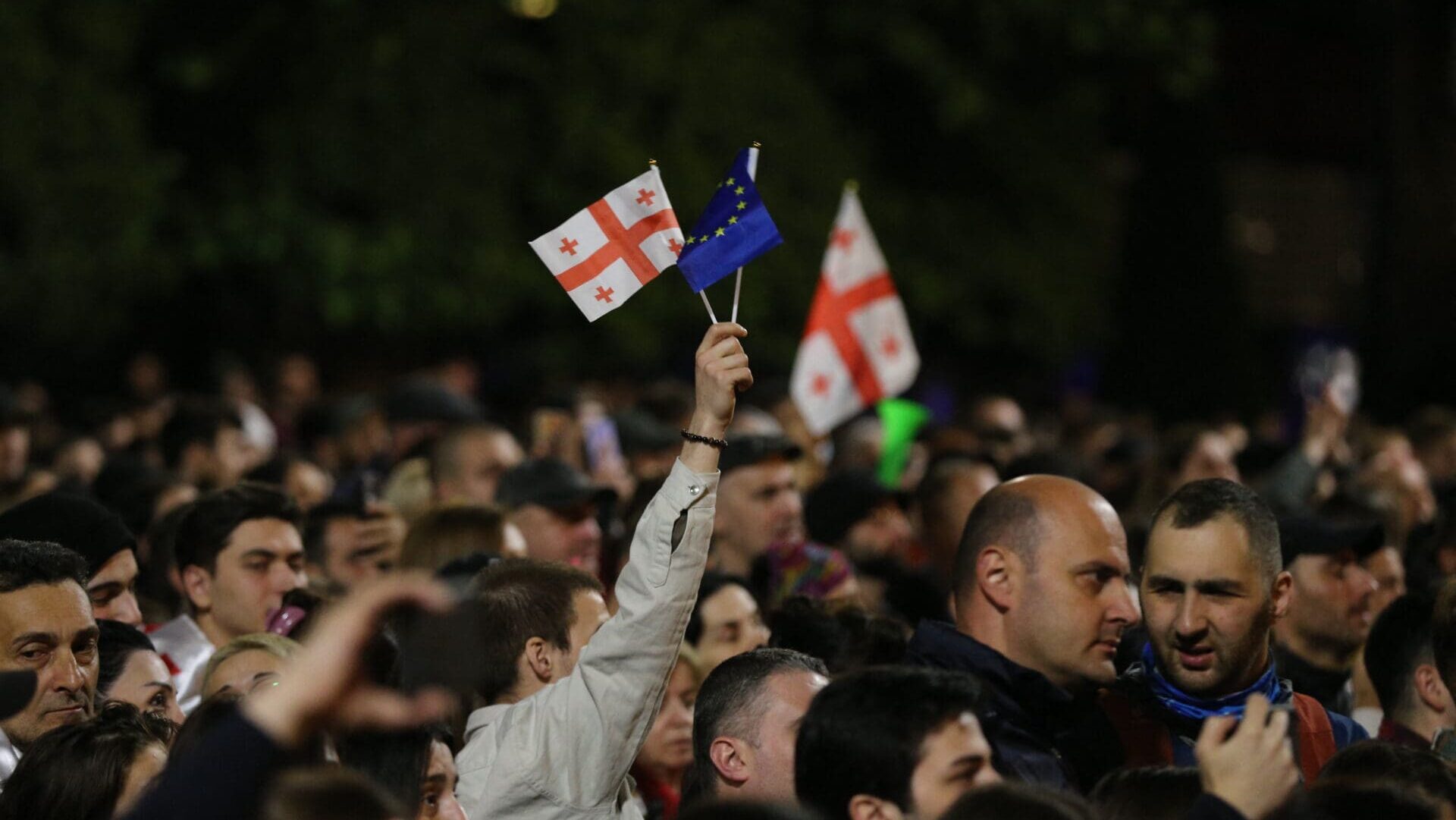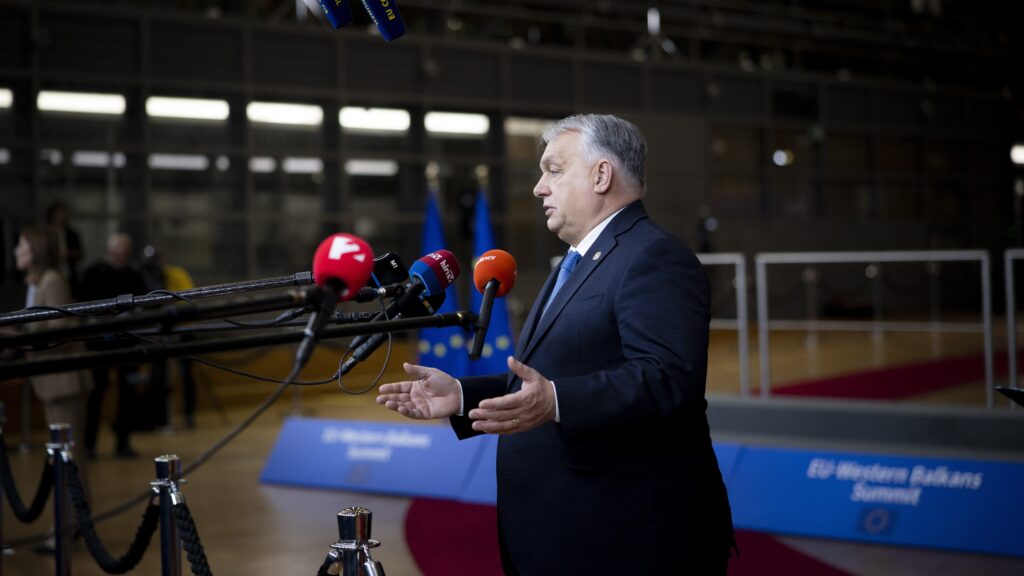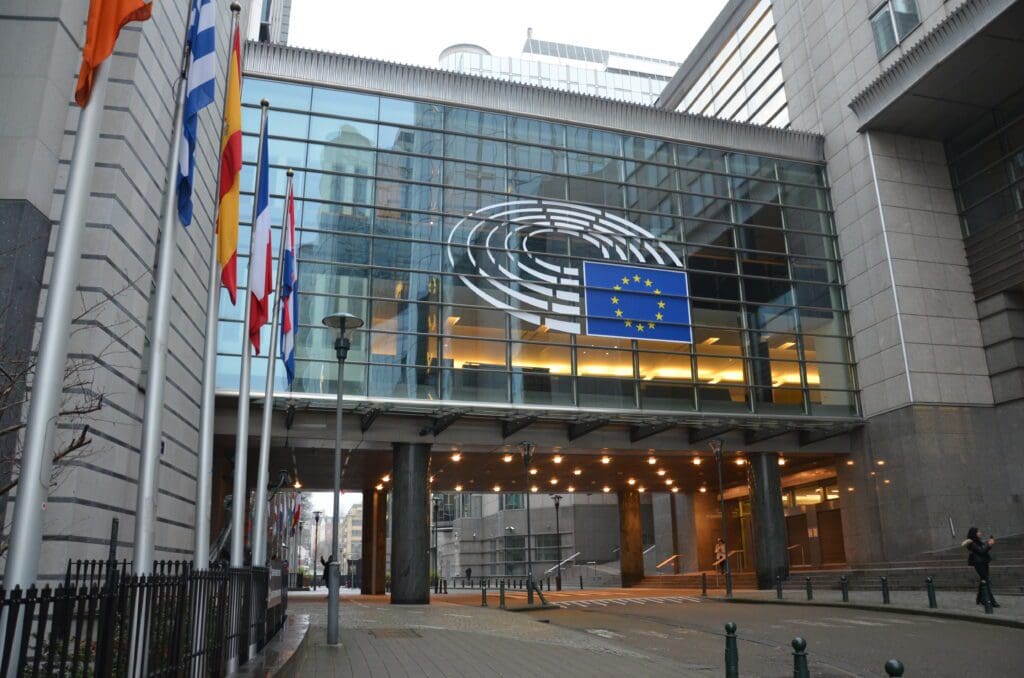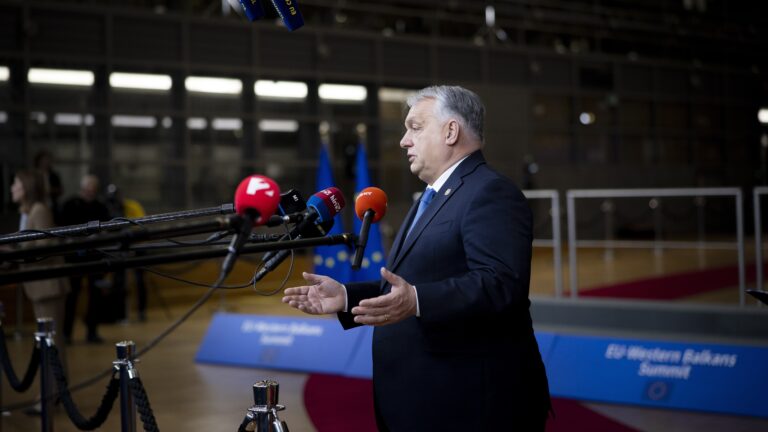After many months of hesitation, the Georgian Parliament passed the Law on Transparency of Foreign Influence on Tuesday. This law mandates that organisations and NGOs receiving at least 20 per cent of their funding from foreign sources must register as ‘agents of foreign influence.’ Failure to comply will result in a fine of up to GEL 25,000 (approximately €7,500). Under this legislation, the Georgian Ministry of Justice is empowered to monitor these organisations and request various pieces of ‘sensitive information.’
Following the adoption of the bill, demonstrators flooded the streets of Tbilisi and attempted to storm the parliament building, resulting in several arrests by the authorities. Protesters are concerned that the government could use the legislation to suppress its opponents. Parallels have also been drawn with a bill enacted in Russia in 2012, which the Kremlin has since used to clamp down on dissidents.
The law was proposed by the ruling Georgian Dream party. Prime Minister Irakli Kobakhidze stated on Monday that if lawmakers backed down, the country would
risk losing its sovereignty and ‘could easily share the fate of Ukraine.’
Meanwhile, President Salome Zourabishvili announced to reporters that she would veto the law. However, this is unlikely to pose an obstacle, as the Georgian Dream party holds a parliamentary majority capable of overriding a presidential veto.
Brussels’ Concerns
The Georgian law has, of course, sparked considerable outcry in Brussels. The European Union granted candidate status to the South Caucasus state in December 2023, significantly influenced by the war in Ukraine and the special consideration Brussels extended during Ukraine’s EU accession. However, this law, often referred to as the ‘Russian law’, could potentially stall the process.
The European Parliament condemned the law in a resolution before its adoption, urging the European Commission and Member States to suspend funding to the candidate country until the ‘illiberal law’ is withdrawn. Additionally, the European Parliament called for targeted sanctions against lawmakers—including PM Kobakhidze—who played a significant role in drafting the proposal.
According to a letter seen by POLITICO, a dozen EU foreign affairs ministers last Friday urged the EU’s top diplomat, Josep Borrell, to ‘send an unequivocal message to Tbilisi that this legislation is incompatible with Georgia’s progress on its EU path’ through an ‘oral update’ on Georgia’s EU accession process. However, the collective response was unsuccessful, as Slovakia and Hungary blocked it.
‘Our intention is not to veto Georgia’s Law on the Transparency of Foreign Influence, but to encourage the introduction of similar laws across the EU!’ wrote Balázs Orbán, the Hungarian Prime Minister’s political director on X on Friday. He added, that
protecting a country’s sovereignty from unwanted foreign interference is not a threat, but a precondition for democracy.
‘This is what the law is about, and instead of condemning it, EU should perhaps also follow the lead, the PM’s political director said in his post.
Our intention is not to veto #Georgia’s Law on the Transparency of Foreign Influence, but to encourage the introduction of similar laws across the EU!
— Balázs Orbán (@BalazsOrban_HU) May 17, 2024
Protecting one’s #sovereignty from unwanted foreign interference is not a threat but a precondition for democracy—this is what…
The Hungarian government has faced similar criticism for the legislation known as the ‘Lex NGO’ it adopted in 2017. This law required non-governmental organisations receiving more than HUF 7.2 million in foreign funding annually to register. Additionally, the Office for the Protection of Sovereignty, established on 1 January 2024, has since become a focal point of criticism in Brussels.
As reported by Hungarian Conservative, the European Commission has launched an infringement procedure against Hungary over the Sovereignty Protection Law, according to a communication released by the EU executive body on 7 February. According to Brussels, the Sovereignty Protection Law, passed by the Hungarian Parliament on 12 December 2023, violates several provisions of primary and secondary EU law, among others the democratic values of the Union and the principle of democracy and the electoral rights of EU citizens. According to the law, the Office for the Protection of Sovereignty’s mission is to raise awareness among Hungarian society and policymakers of foreign attempts to influence Hungarian politics. To this end, it may conduct studies under its own power or in cooperation with other state bodies and will make the results of these studies public. It may also make proposals to the legislator for the protection of Hungarian sovereignty.
The Sovereignty Protection Act was deemed necessary because during the campaign period leading up to the 2022 parliamentary elections, opposition parties and media organizations received significant funding from foreign organizations in order to defeat the ruling parties.
Following the Lead of Putin — Or the United States?
According to critics in Brussels, as with the case in Georgia, Hungary is accused of following the ‘Putin road,’ aiming to make it impossible for foreign-funded NGOs and media to operate. However, as Georgian Prime Minister Irakli Kobakhidze has also pointed out, a
very similar law in the United States regulates the extent of foreign influence.
The Foreign Agents Registration Act (FARA) of 1938 requires the registration of, and disclosures by, an ‘agent of a foreign principal’ who, either directly or through another person, within the United States engages in ‘political activities’ on behalf of a foreign principal; acts as a foreign principal’s public relations counsel, publicity agent, information-service employee, or political consultant; solicits, collects, disburses, or dispenses contributions, loans, money, or other things of value for or in the interest of a foreign principal; or represents the interests of the foreign principal before any agency or official of the U.S. government. In addition, FARA requires agents to conspicuously label ‘informational materials’ transmitted in the United States for or in the interest of a foreign principal.
According to the FARA, an ‘agent of a foreign principal’ is any person who acts as an agent, representative, employee, or servant, or otherwise acts at the order, request, or under the direction or control of a ‘foreign principal’ and does any of the following:
- Engages within the United States in political activities, such as intending to influence any U.S. Government official or the American public regarding U.S. domestic or foreign policy or the political or public interests of a foreign government or foreign political party;
- Acts within the United States as a public relations counsel, publicity agent, information service employee, or political consultant;
- Solicits, collects, disburses, or dispenses contributions, loans, money, or other things of value within the United States;
- Represents within the United States the interests of a foreign principal before U.S. Government officials or agencies.
As we can see, there’s almost no difference between the US FARA and the Georgian or the Hungarian laws regulating foreign influence. Still, White House Press Secretary Karine Jean-Pierre, has expressed concern that should Georgia’s ‘foreign agents’ regulation pass, it could trigger a significant ‘reassessment’ of the bilateral relationship between the two nations. US Ambassador to Hungary David Pressman reacted the same to the establishment of the Office for Sovereignty Protection, calling it ‘destructive to democracy’, stating that the controversial law is unlike any other law he knows of ‘in any democracy, let alone in another EU or NATO member state.’
Related articles:







